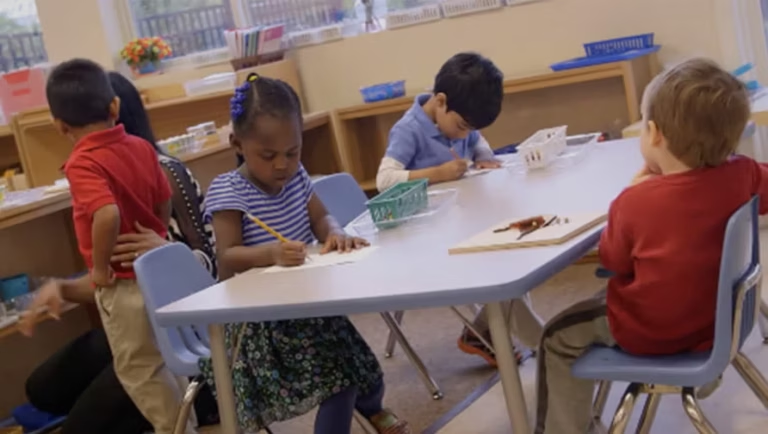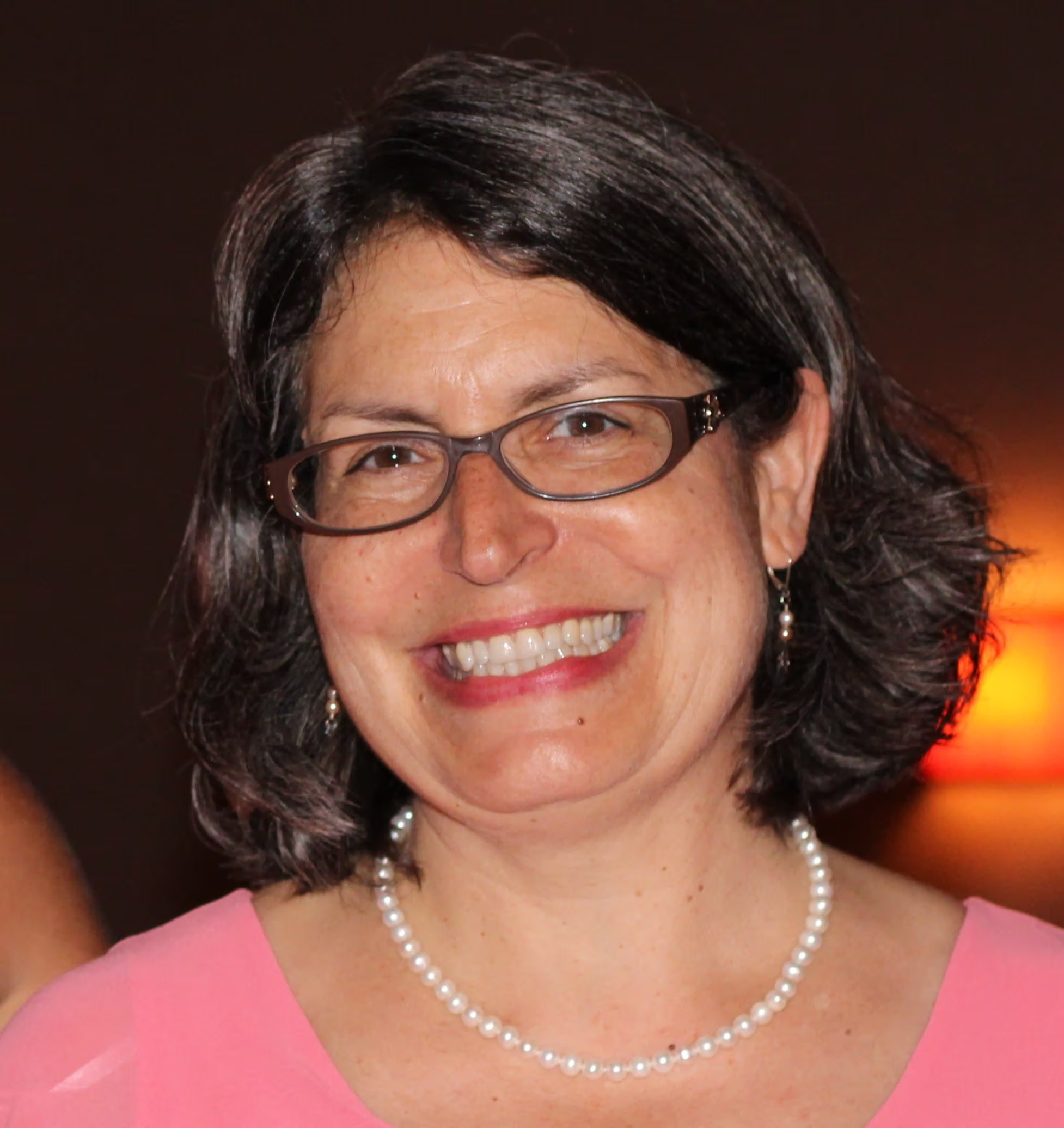Montessori for Children with Disabilities and Neurodivergences

The Montessori Method of education provides a nurturing, supportive environment for children of all abilities and learning styles. This includes children with disabilities and neurodivergences, including physical disabilities; learning differences in reading, writing, spelling and/or math; ADHD; and autism spectrum disorders.
Children learn in multi-age classes, with the same teacher, for 3 years. This sustained connection creates a stable, predictable environment for adults and children alike. Students are able to attend to their learning, rather than having to adjust to new people and new routines every year.

Parents and teachers explain how integrating children with disabilities and neurodivergences into the Montessori classroom can facilitate discipline, confidence, and growth. By observing each child, Montessori teachers create individualized lesson plans that meet the needs of every child.
Finding a Fit
The Right Academic Fit
Montessori education recognizes that each child learns differently and at their own pace. Montessori respects each child’s unique learning path. Your child’s educational plan is matched to their unique developmental level, learning style, and interests. They will receive individualized instruction and progress through the curriculum at their own pace. They will be free from the pressure to meet formal standards of learning (such as grade-level benchmarks) at a predetermined rate, but will be challenged at the appropriate level in all areas of learning.
Learning in a Montessori classroom is multi-sensory and hands-on. Students learn by doing and are free to move about. This is an advantage for those who require a high level of physical activity or may have difficulty sustaining attention in a more traditional classroom setting. Additionally, the organization and structure of a Montessori classroom helps children develop organizational and time management skills that lead to independence. This is especially important for students with executive functioning deficits.
Montessori teachers are trained observers who expertly individualize instruction for all students, not just those with learning differences. Through careful observation of each student, teachers tailor their lesson planning to include accommodations for students who need support.
This means that students with learning differences may be included in a lesson with their peers (and thus be socially included) and receive individualized follow-up work for their specific needs. This allows each child in a Montessori classroom to be successful.
The Right Social Fit
Montessori schools value respect for others, diversity, and inclusion. Children with disabilities and neurodivergences often thrive socially in Montessori environments where they are welcomed into a multi-aged peer group that promotes kindness and acceptance. In a classroom with older and younger peers, your child will learn from others and experience new challenges through observation of their friends. They will also reinforce their learning by teaching concepts they have already mastered to other children, while developing leadership skills and serving as a role model.
Importantly, in the multi-aged classroom, your child will build self-esteem through individualized, positive learning experiences. In a Montessori classroom, each child does individual work at their own pace. This decreases the tendency of children to compare their progress with their peers or notice if another classmate is more or less advanced. This eliminates the impression of being “behind” that children with disabilities and neurodivergences may feel in traditional classrooms.
School Support Services
Depending on your child’s needs, a Montessori school might refer them for additional resources such as speech and language therapy, occupational therapy, and/or counseling. Some schools might offer some specialized services in-house, while others will recommend outside resources in the community for students who need additional support. In all cases, the school works in close partnership with a child’s family in order to best meet each child’s unique needs.
Nonetheless, some students may need greater accessibility or more support services than a given school can provide. Each Montessori school is autonomous in determining which services and support it can provide to best meet the needs of its students. In each situation, the student’s individual needs and the school’s resources should be carefully assessed through a partnership between the school and the family to ensure a successful match.
Language and perceptions change rapidly. AMS will continue to collaborate with disabled and neurodivergent people in order to educate its staff and members on the most affirming language keeping disability justice in mind. Please refer to the National Center on Disability and Journalism as a resource for inclusive language.

Jennifer Spikner
Head of School, Montessori Academy of Chicago, Illinois
The hands-on aspect of the materials allows children with disabilities and neurodivergences to have that concrete experience before they move into the abstract. Something that they can see, they can touch, they can feel, they can manipulate – really aids learning.
Dive Deeper into The American Montessori Society
About AMS
Find out how AMS sets itself apart by upholding the most high-fidelity Montessori principles.
AMS Community
Connect with a passionate, global Montessori community.
AMS Events
Get more information and sign up to attend Montessori events happening in your area.